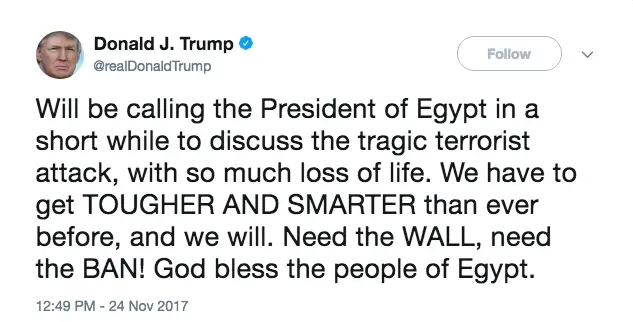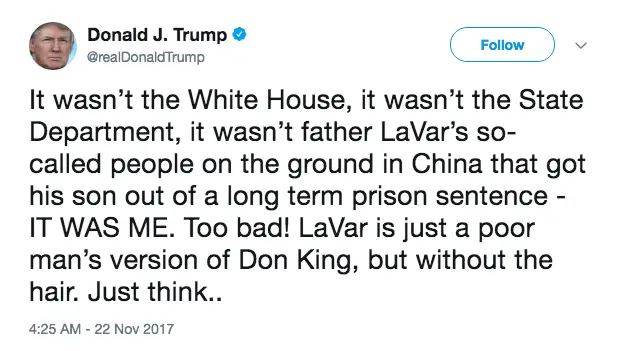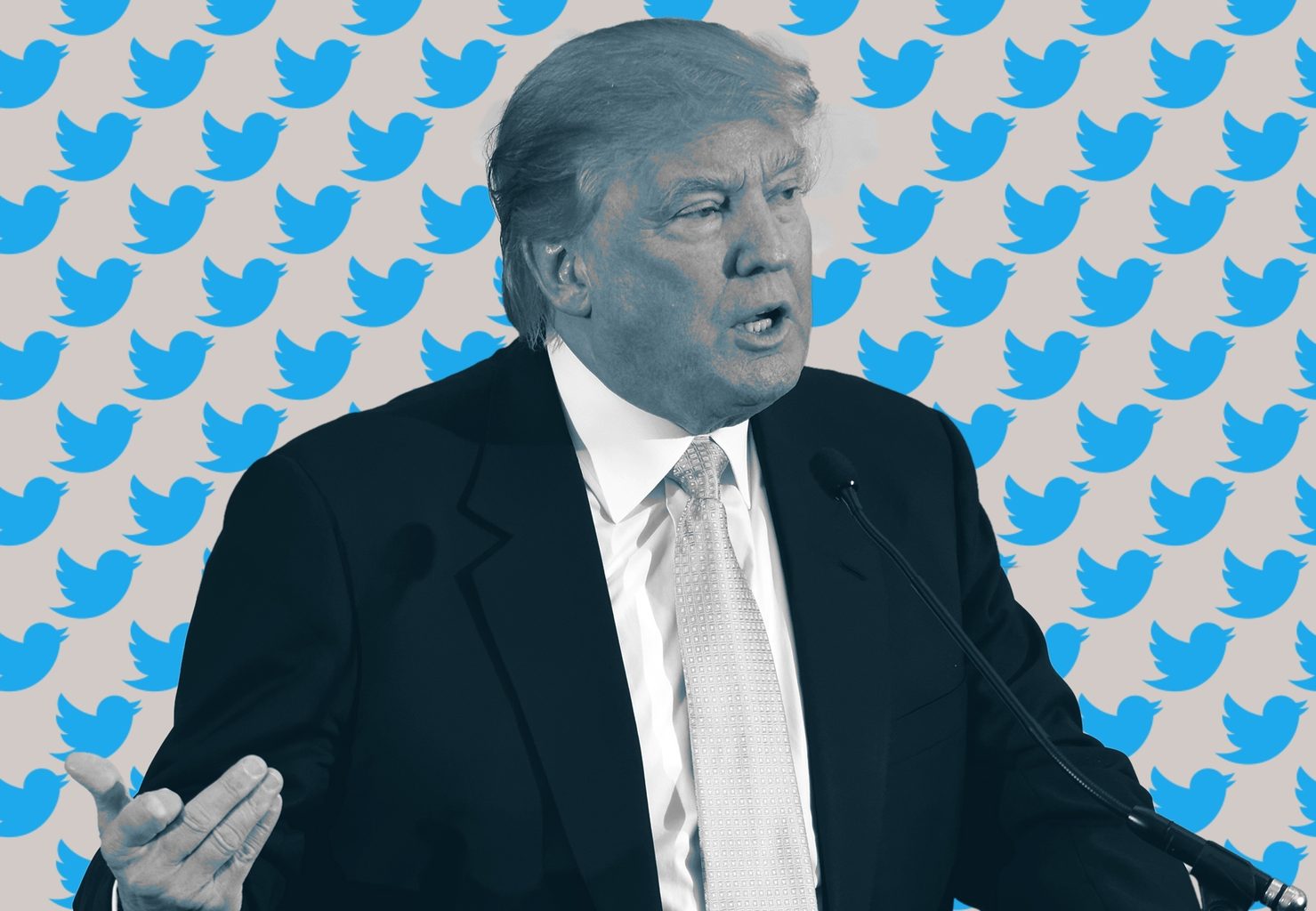When Twitter announced in September that they would be slowly increasing their character length from their long-standing 140 limit to a whopping 280, everyone on the social media platform was up in arms about it. For many, it was a slight against the eleven-year-old site that forced its users to post short, concise messages. For Donald Trump—whose Twitter posts serve as a crude adaptation of Roosevelt’s fireside chats—the increased character limit provided him with what he loves best: more of his own screwed, off-putting and, often times, misspelled ramblings.
Twitter, created by Jack Dorsey, Noah Glass, Biz Stone and Evan Williams, has exploded with more than 974 million users currently tweeting. It was first created in March 2006 and the platform was a response to Apple’s podcasting services.
While Twitter gives people of influence a chance to engage with their fan base directly, no celebrity or politician (in this case, both) has been able to captivate and horrify the Twittersphere quite like Trump has since he began using it back in May 2009.
Contrary to the uncensored nature of the internet, Twitter users must adhere to a set of rules that are stated on the site’s terms and conditions. Some of the rules are standard, such as their Hateful Content policy, which states, “You may not promote violence against or directly attack or threaten other people on the basis of race, ethnicity, national origin, sexual orientation, gender, gender identity, religious affiliation, age, disability, or disease. We also do not allow accounts whose primary purpose is inciting harm towards others on the basis of these categories.”
Some of Trump’s critics claim that he has not only broken said rules but blatantly dismissed Twitter terms and conditions as a whole, since he has purposely attacked dissidents and critics of his administration ranging from celebrities to journalists and even the everyday people he is supposed to be representing.
While many would be disheartened to read Trump’s daily erosion of the highest office in the land and abroad, his gross disregard of social and online norms can at least be a learning lesson for all Twitter users who are still doing their best to keep some semblance of civility in such a downturn of this country’s morality by their Tweeter-in-Chief.
Here are three things Trump has done (so far) that are assuredly and totally Twitter no-no’s:
1. Foreign policy
The office of President of the United States is a prestigious position that calls for a more professional level of public behavior of whoever steps into this role. With the office comes a team of trained public relations professionals and publicists who have spent years learning to connect and communicate with the public through carefully crafted messages.
Every time Trump opens his app and begins tapping away to shoot out abrasive and misinformed tweets, it is a waste of these professionals at his disposal and a detriment to his public image, which he seems to enjoy having no regard for anyway. Serious matters a president would typically discuss in a press briefing, with other officials and professionals or in statements to the public, now come straight from the president’s personal account in the most informal way.
Trump should not be allowed to spew out his first thought on official national business. For example, consider his tweet from November 24, 2017:

He has taken official government affairs and messages, which typically require serious thought and discretion when repurposed for the public, and thrown the process out the window. An issue that should have been addressed via press release, something he hasn’t held since July, has been voiced as a sloppy tweet which uses one tragedy to push an unethical policy.
People of influence and power, such as celebrities and politicians, must consider what they say because their words do not simply form statements—they form potential endorsements. Their words carry a heavier weight than that of the average person, and with this extra weight comes extra responsibility. The president is no exception to this. When you become the leader of the United States of America, you should also understand that you are no longer allowed to say whatever you please.
2. Celebrity showdowns
Trump is no stranger to being famous and in the spotlight. Before he was the president he was the star of “The Apprentice” and “The Celebrity Apprentice,” where he judged a group of business people and celebrities competing to run one of his companies and earn the “Apprentice” title.
The notion of a president having a semi-personal and professional Twitter account was fun and entertaining when it was the 44th POTUS Barack Obama, who was probably the first to successfully engage his following with a Twitter account. Similar to any celebrity having social media, his Twitter provided some insight and familiarity you can’t get anywhere else.
The Los Angeles Times has created a database of all of Donald Trump’s tweets since he took office. In the list of categories is Russia, North Korea, Politics and Policy. A collection listing organized tweets for reference such as this one does not exist for Obama, who easily tweeted with discretion.
Before, when Trump was just a regular celebrity, he was a bully and had no concern for who he pissed off or offended. Now, not much has changed. Again, this behavior should not be excusable, especially as the president. No person, politician or celebrity is safe from his harassment, from Obama to Hillary Clinton, and from Rosie O’Donnell to Chrissy Teigen.
His latest celebrity feud is with former professional basketball player LaVar Ball after the president allegedly facilitated the release of three UCLA basketball players from incarceration in China after shoplifting. One of those players being Ball’s son LiAngelo. Trump went so far as to call the players out before they could make a statement, insisting they thank him for his actions. Later, in an interview with CNN following the tweet and the players’ statements, Ball insisted he did his own footwork to facilitate their release and did not need to thank Trump for his help.
Any other president would neither, A) demand thanks from the basketball players for something many believe he should seemingly be expected to do in his position, nor B) respond to the interview where Ball told CNN he did not need to thank the president for his efforts. However, this is Donald Trump, so of course he responded.
Trump called Ball an “ungrateful fool” just after insulting Ball’s looks:

You don’t have to be a kid to understand how childish this behavior is. When situations get bad for Trump, he doesn’t stop at insults. He has been known to block others as well.
3. Blocking followers
There are seven Twitter users who, through the Knight First Amendment Institute at Columbia University, are suing for their First Amendment rights by arguing that being blocked by the president, after disagreeing with his policies or tweets, infringes on their right to free speech.
Being that Trump’s twitter is considered a designated public forum, the seven Twitter users have a valid argument. Trump himself insists his Twitter is the easiest way for him to reach the American people and can stand by the fact that he uses his personal account, allowing him standard blocking privileges. The fact remains that he is now a public figure and is using his personal Twitter in a way that screams “designated public forum.”
Some of the tweets which have prompted this behavior include small remarks or simple statements that, again, any normal president would overlook and ignore. Model Chrissy Teigen, known for her equally fiery and blunt tweets, managed to get herself blocked by responding to one of Trump’s tweets with “No one likes you.”
Others have done more or less to end up on the growing list that contains authors, such as Stephen King, teachers, researchers, professional wrestlers and other celebrities who show enough disagreement with his statements and policies.
It won’t be the first or the last time you hear it: Trump’s tweeting methods are atrocious and should not be tolerated. For now, Twitter remains available as his primary and preferred medium to spew whatever he deems worthy of his 280 characters.

















